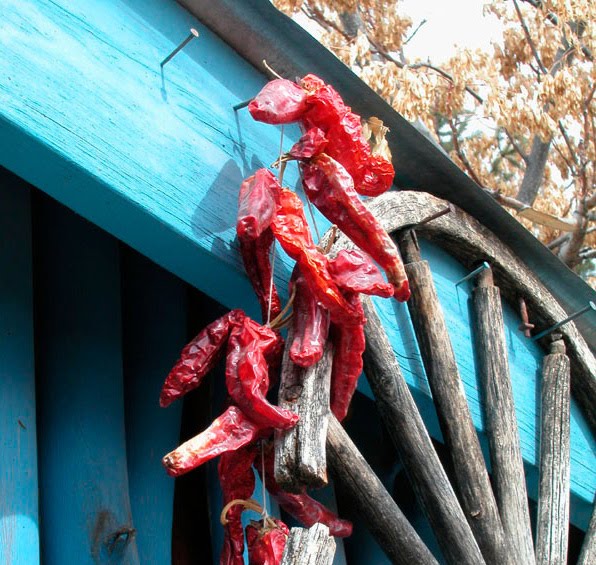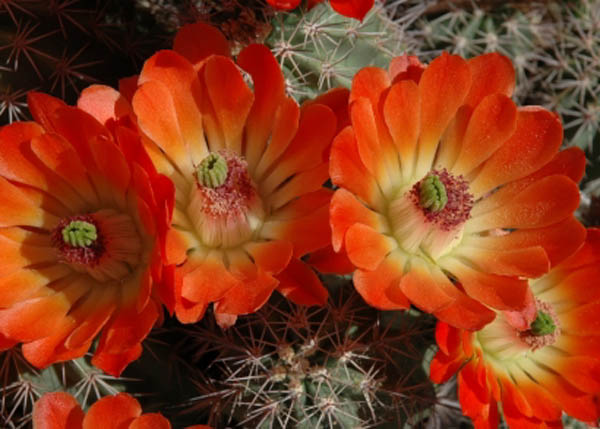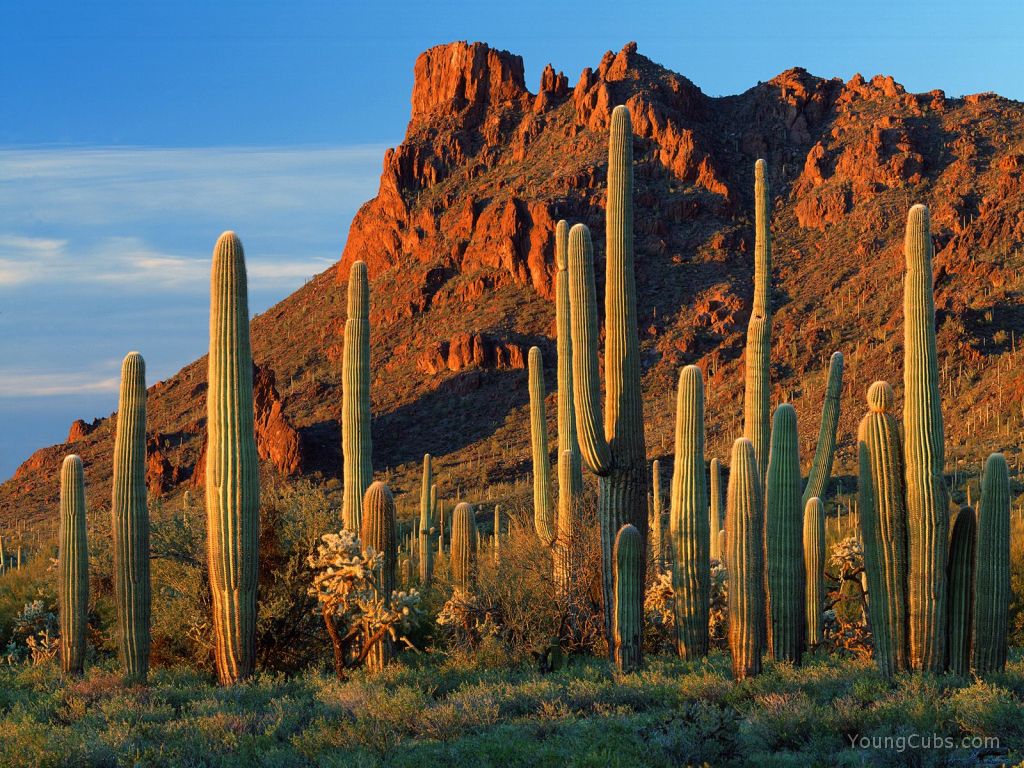On three sides of an unpainted block wall stands an older working class neighborhood, it's houses dotted with swamp coolers and satellite dishes. Cactus and scraggly ironwood trees have grown out of bounds, crossing property lines indiscriminately. Aluminum chairs with torn webbing share the shaded carport spaces, shoulder to shoulder with faded vehicles sitting on balding tires.
The fourth side of the wall forms the eastern boundary for a mobile home park. Trailer houses with patched window screens and dented tin siding slouch over rusted wheel wells. Here they sit and here they will stay, any hint of mobility gone forever.
Yet, there is no graffiti, trash does not litter the yards and no cars sit up on blocks. It is very poor, but clean and probably safe.
Between these living arrangements, the gray walls enclose a dirt parking lot and a forest of white crosses that mark the final resting places of those who have given up living altogether.
This is Guadalupe Cemetery
Tempe, Arizona
(clicking on photos will bring them to screen size)
I came here on a white hot day a few weeks ago to see this cemetery reflecting Hispanic and Yaqui Indian cultures, established in 1904. There were people around so I asked permission to photograph the area, being careful not to include any living person in my pictures. Also, I was dressed appropriately and moved quietly. Small gestures are important, I think. Especially in these spaces.
Someone thought about this soldier recently; the flag is not yet faded. Surely his face was brought to mind when the primitive crucifix was made for him.
Even in the early morning hours, the unforgiving sun drove me towards the shady places. I was heading for the folk art on the back wall. It wasn't easy.
There are few orderly rows, convenient right angles or discrete distances between markers. I kept the backs of crosses immediately to my left, reasoning that I would be at the bottom edge of the grave to my right, only to find that I would end up at an intersection with a grave directly ahead. So, I would walk the few inches between graves and turn where I thought they ended, refusing to walk over a grave not out of fear, but respect.
Still I found myself apologizing to people long since dead and beyond caring for stepping on their toes.
When I finally arrived at the back wall, I saw this.
Isn't it wonderful! So much life and joy. It depicts El Dia de los Muertos (The Day of the Dead). Unlike Halloween and it's evil spirits with which it is wrongly associated, The Day of the Dead is a celebration of life. Life and death are intermingled. On this day, graves will be cleaned and decorated. Food may be brought and shared. Laughter and music will be in the air.
It may make it easier to bear this.
The child's grave is marked by two pots with white stones to hold flowers; one bouquet has blown away. There are two white ceramic puppies and three Christmas trees here. It's better not to speculate.
A child's grave is sad enough.
A doll and a yellow plush kitten look over this grave covered with the mementos of a young life. On The Day of the Dead, November 1, the vases will hold fresh flowers and maybe another little gift will have been found to place here.
Not everyone has family to honor their lives, but neither are they forgotten. The pieces of this cross have been carefully gathered and placed over the flag until The Day of the Dead when a new cross and flag will be erected. I only saw three broken crosses; they all looked like this, waiting to be renewed.
The town of Guadalupe is named after Our Lady of Guadalupe or in Mexico, La Morenita, depicted here appearing to the Aztec Indian, Juan Diego in 1531. From then on, Catholicism became an inextricable part of all Central American culture.
This newly placed cross was erected this past April. The hand painted decoration and carefully filigreed wood is lovely. The grave is in front of the cross. The bricks behind it line another grave beginning just inches away.
Just a couple feet away, the same family used this cross fifteen years ago. It seems to be holding up well. The wood cutting and hand painting are sealed and the colors remain bright.
Nearby, the Virgin of San Juan overlooks the far eastern part of the cemetery. Everywhere, the walls have been painted with religious representations. Effort has been made to show that this is a sacred place and to surround the dead and their visitors with comforting symbols.
Some graves are fresh and tidy with historical information on the cross.
Others have intriguingly little information.
Known only by their given names, these three appear to belong together, possibly brother and sisters? Among the many graves, some are barely remembered.
And some are forgotten. My grandmother used to say that you are truly dead when the last person who remembers you dies. You are then beyond living memory. This grave will be attended to on The Day of the Dead. Someone will show respect for an unknown one. Like other graves, this one will be cleaned, the dirt will be swept up onto the mound and any broken monuments will be replaced or repaired.
A small bench makes visiting easier. The simple palm frond roof will provide shade from the western sun. It is a place to gather and provide ease. A grave is a sorrowful thing. But here, death is not overwhelming. Life is close by.
Some grave sites are newer and much more elaborate, providing ample comfortable seating, shade and more durable masonry monuments. The deceased is still very much a part of the family.
Whatever the circumstances, all are equal now. But there is a difference here from most cemetery sites. This one is visited, routinely. It is not a forlorn and forgotten place.
Death is part of life. Traditional marigold wreaths are placed on the crosses to alert the deceased to the attention paid by the living. A face is brought to mind, a gift is left with love.
Mostly, they remember
(Anyone interested in genealogy will have to apply to the Town Clerk of Guadalupe for information.
Although this cemetery is current, raised mounds do not always indicate recent burials.)





























.jpg)





.png)






